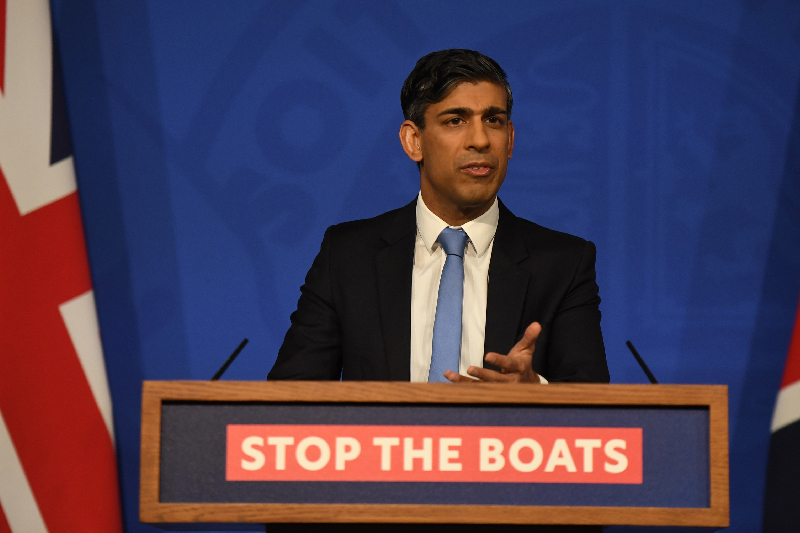

Britain's Contentious Plan to Send Some Migrants to Rwanda has hit a significant hurdle in Parliament.
Britain’s Contentious Plan to Send Some Migrants to Rwanda has hit a significant hurdle in Parliament. The House of Lords has introduced amendments to the Safety of Rwanda Bill, sending the legislation back to the House of Commons for further review. This development has delayed the passage of the bill, which the government had hoped would proceed smoothly. Despite this setback, the bill is still expected to become law, likely next week.
The resistance to the bill in the House of Lords highlights the opposition in the upper house, where the Conservatives lack a majority. The government had anticipated that the Lords would not block the bill, but the introduction of amendments has complicated its passage. Home Office Minister Michael Tomlinson emphasized the need for the law to combat human smuggling, which the legislation aims to facilitate through deportation flights to Rwanda.
However, the plan faces legal challenges, and no migrants have been sent to Rwanda under the existing agreement signed two years ago. Critics argue that it is unethical to deport migrants to a country they do not wish to live in. The Safety of Rwanda Bill is designed to overcome a ban on sending migrants to Rwanda imposed by the U.K. Supreme Court, which ruled that the East African country is not a safe destination for asylum-seekers due to the risk of being returned to conflict-wracked home countries.
In response to the Supreme Court ruling, Britain and Rwanda signed a treaty pledging to strengthen protections for migrants. Sunak’s government argues that the treaty allows it to pass the new law, which pronounces Rwanda safe, making it harder for migrants to challenge deportation. It also allows the British government to ignore injunctions from the European Court of Human Rights that forbid removals.
Human rights groups, refugee charities, senior Church of England clerics, and many legal experts have criticized the legislation. In February, a parliamentary rights watchdog stated that the Rwanda plan is “fundamentally incompatible” with the U.K.’s human rights obligations. Britain’s main opposition parties also oppose the legislation, with Scottish National Party lawmaker Alison Thewlis calling the Rwanda Bill “a turd which cannot be polished.”
Despite facing significant opposition and legal challenges, Britain’s plan to deport asylum-seekers to Rwanda is still expected to become law. The amendments introduced by the House of Lords have delayed its passage, but the government remains determined to push ahead with the legislation. The debate over the bill highlights the complexities and ethical considerations surrounding migration policies in the U.K. and beyond.
In a new effort to speed up deportation processes, the Trump administration is unveiling an unpopular application, which gives undocumented…
In a bid to advance inclusive hiring and access a larger talent pool, Deloitte has opened up multiple roles for…
At the 2025 Great Place To Work Summit in Las Vegas, Marriott's CEO Anthony Capuano showed a powerful moment that…
A new report from Save the Children and Plan International, provides an alarming description of the experiences migrant children have…
In the move to deepen cooperation between North Korea and Russia, Kim Jong Un has sent a large number of…
As per the US Department of Agriculture briefing reviewed by Reuters with congressional staff, more than 15,000 USDA employees have…
This website uses cookies.
Read More